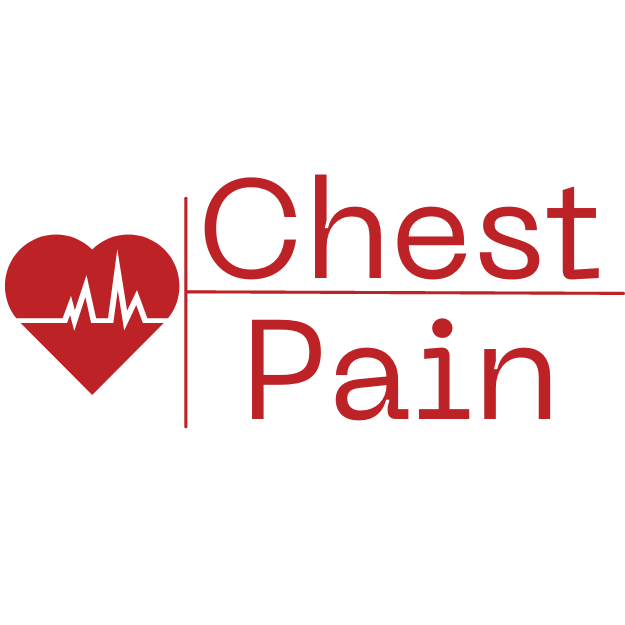Chest pain is often associated with heart attack, but it is not always heart attack that causes chest pain. Heaviness in the chest or chest pain is a life-threatening condition that requires an immediate medical emergency.
Causes
There can be several reasons for chest pain, some of which can be lethal, but most are not that dangerous. You need to contact your doctor to have your health examined. After proper diagnostic tests, they will examine the causes of chest pain and prescribe the treatment accordingly. Following are a few common causes of chest pain:
-
Angina
Angina is a common condition in which a person feels pain, tenderness, and pressure in the chest. It happens when heart muscles are not getting enough oxygen due to any other Coronary heart disease. Angina may cause pain and tenderness on the left side of the body, mostly in the arm, shoulder, neck, back, and jaws. Doctors will perform different diagnostic tests, i.e., treadmill stress test, EKG, Echocardiogram, and blood tests, along with checking medical history and examining your symptoms to diagnose angina. Treatment includes medications like beta blockers, Aspirin, nitroglycerin pills, etc., along with adopting a healthy lifestyle.
- Heart Problems
Severe chest pain is triggered due to decreased flow of blood, which results in the death of muscle cells. This phenomenon is often called myocardial Infarction or is more commonly known as a heart attack. The symptoms of a heart attack look similar to angina, though a lot more severe, which excruciating pain in the middle or slightly left side of the chest accompanied by shortness of breath, nausea, and extreme weakness.
The inflammation of the muscles around the heart results in fever, fatigue, increased heart rate, and shortness of breath, termed myocarditis. This is a blockage of the arteries or the muscles, but symptoms may feel like a heart attack. Pericarditis may feel similar to an angina attack but is often accompanied by a sharp pain in the upper neck and muscles. It is caused by the inflammation of the sac around the heart. The pain could aggravate due to breathing, eating, and lying straight on your back.
A genetically transmitted disease causes the heart muscle to become thicker than usual, known as hypertrophic cardiomyopathy. The condition could affect the flow of blood out of the heart. This can lead to severe pain and breathing problems, leading to heart failure due to decreased thickness and difficulty pumping blood. Other symptoms include dizziness, lightheadedness, chest pain, fainting, etc.
- Pneumonia
Pneumonia causes symptoms like fever, chest pain, cough, body aches, etc. Other lung problems like pulmonary hypertension, pulmonary embolism, and asthma can cause coughing, chest pain, breathing issues, high blood pressure, etc.
- GERD
Gastroesophageal reflux disease is a disease in which stomach acids travel to the esophagus due to a malfunction of the stomach valve. It can cause symptoms like heartburn, chest pain, bloating, nausea, etc. Such symptoms are also caused by peptic ulcers and pancreatitis etc. But if symptoms seem to get worse, then you should seek medical help right away.
- Muscle Strain
Muscle Strain can cause pressure on chest muscles which in most cases ignites pain in the chest.
- Gas
One of the most frequent causes of left-sided chest pain is the buildup of intestinal gas. People with constipation are more likely to experience this kind of pain. It is distinguished by a slight discomfort that lasts for a few minutes or hours but is relieved by flatulence or a bowel movement. Typically, this discomfort doesn’t accompany any other symptoms; it just happens on its own. However, some people might have some slight bloating and digestive noises. What to do: Lightly massage the belly to encourage the gas to pass to reduce pain. To aid with gas flow and discomfort, you can also try resting on your back while clutching your knees to your chest. Additionally, you might try these home cures.
Diagnosis
The left side pain in the chest can be caused by different medical issues and can be diagnosed differently.
The doctor will perform the following steps to diagnose your medical condition:
- The doctor will ask about your symptoms. Record your symptoms and provide the information to the doctor correctly.
- The doctor will look into your medical history and medication if you’re already using any.
- They will perform different diagnostic tests to determine the exact problem. Usually, doctors do ECG, blood tests, X-rays, ultrasounds, or CTPA.
- After the test results, the doctor will examine the effects, discuss your medical condition, and advise the treatment accordingly.
Treatment
Treatment usually depends upon what is causing chest pain on the left side. Usually, treatment includes medications like antibiotics, beta-blockers, H2 blockers, etc. If there is an esophageal or muscle rupture, the patient might need surgery.
However, certain people might require surgery in more serious, life-threatening, or pressing situations. Depending on the diagnosis, the most common surgeries and procedures performed in cases of nausea and chest discomfort are angioplasty, bypass surgery, emergency dissection repair, and lung re-inflation. Long-term treatment includes follow-up exams, a healthy diet, quitting smoking, and stress management.
Conclusion
You should go to the hospital if the pain is severe and accompanied by symptoms like breathlessness and numbness in your left arm or if it doesn’t go away in a few minutes. An electrocardiogram will usually be prescribed to rule out a heart issue for older persons or those with a chronic ailment like high blood pressure, diabetes, or high cholesterol. Improving your lifestyle and overall health is highly recommended to avoid chest pain and other symptoms like this. Start eating healthy, quit smoking and drinking, and start exercising regularly.
References
- https://www.tuasaude.com/en/left-side-chest-pain/
- https://www.medicalnewstoday.com/articles/327375
- https://www.webmd.com/pain-management/guide/whats-causing-my-chest-pain
- https://www.healthline.com/health/left-chest-painwith
